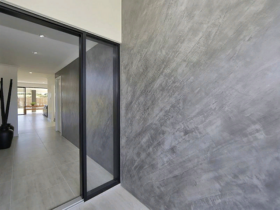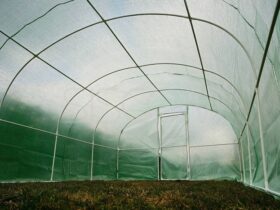Artificial stone is a decorative finishing material, similar in appearance with natural stone. Such a stone has durability, namely, it can last more than 50 years. Let’s look at the basic properties of such a stone.
Stability to ultraviolet rays. Under the influence of sunlight, the stone will not change color and chemical composition.
Easy installation. Such a stone can be polished, drilled and cut. Due to a certain glue, you can achieve a connection without visible seams.
Hygiene. The stone is easily cleaned, when contacting food products is absolutely safe. Artificial stone is not a purse and therefore will not absorb dyes and smells.
Plastic. When heated to high temperatures, the stone acquires a different shape.
Moisture resistance. Can be used in rooms with high humidity. The stone is not afraid and does not absorb moisture.
Rich color scheme. Such a stone is not limited by a certain color scheme.
Availability. Artificial stone is easier to buy and deliver, and the price is much cheaper than natural stone.
Simplicity of processing. The stone does not crumble, does not properly relax in contrast to natural.
At the moment, artificial stone is made by vibration pressing, vibration or hyperpressing from white cement, colored pigments, sand, various additives. The prepared mixture is poured into certain forms, after which the tile is obtained on one side is smooth, and the embossed on the other side. Product quality is determined by forms such as polyurethane, plastic, gypsum.
There are many types of artificial stone on the market. It is much lighter than natural stone and can be used not only in residential premises, but also in public interiors. A beautiful respectable view will give the room the walls of cabinets, canteens, corridors, kitchens trimmed with this material. Artificial stone can be used for fireplace cladding. Do not forget that, unlike natural stone, it must be laid so that it does not touch the heating surfaces.
Artificial stone products have different sizes: from 5 square centimeters up to 0.5 square meters, the thickness of the tiles can fluctuate from 1 to 10 cm.
An artificial stone is faced with a different surface: wood, metal, concrete, brick, drywall. Such a stone is attached with a mastic, cement mortar or special glue. The thickness of the glue layer should not be higher than 0.5 cm. The stone is pressed into the adhesive solution with circular motions. The choice of material primarily depends on the shape and variety of stone. Glue is more elastic, and cement is homogeneous to the structure of concrete. Artificial stone is easier to fit than tiles. There are no professional skills to install it.
A lot of publications are full of headlines about the independent manufacture of artificial stone. However, without knowledge of the intricacies of making such a stone, you cannot do. Production should be carried out by qualified specialists, on special equipment, in a certain workshop.
An artificial stone will be able to transform any interior, and with the help of a small part, designed by this material, you can give the room an exquisite look.











Оставить коммент.